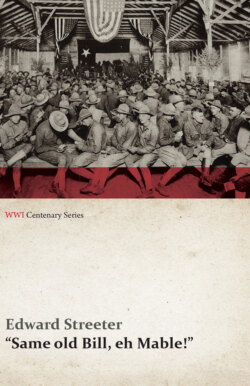Читать книгу Same Old Bill, Eh Mable! (WWI Centenary Series) - Streeter Edward - Страница 6
На сайте Литреса книга снята с продажи.
ОглавлениеIntroduction to the World War One Centenary Series
The First World War was a global war centred in Europe that began on 28 July 1914 and lasted until 11 November 1918. More than nine million combatants were killed, a casualty rate exacerbated by the belligerents’ technological and industrial sophistication – and tactical stalemate. It was one of the deadliest conflicts in history, paving the way for major political changes, including revolutions in many of the nations involved. The war drew in all the world’s great economic powers, which were assembled in two opposing alliances: the Allies (based on the Triple Entente of the United Kingdom, France and the Russian Empire) and the Central Powers of Germany and Austria-Hungary. These alliances were both reorganised and expanded as more nations entered the war: Italy, Japan and the United States joined the Allies, and the Ottoman Empire and Bulgaria joined the Central Powers. Ultimately, more than 70 million military personnel were mobilised.
The war was triggered by the assassination of Archduke Franz Ferdinand of Austria, heir to the throne of Austria-Hungary, by a Yugoslav nationalist, Gavrilo Princip in Sarajevo, June 28th 1914. This set off a diplomatic crisis when Austria-Hungary delivered an ultimatum to Serbia, and international alliances were invoked. Within weeks, the major powers were at war and the conflict soon spread around the world. By the end of the war, four major imperial powers; the German, Russian, Austro-Hungarian and Ottoman empires—ceased to exist. The map of Europe was redrawn, with several independent nations restored or created. On peace, the League of Nations formed with the aim of preventing any repetition of such an appalling conflict, encouraging cooperation and communication between the newly autonomous nation states. This laudatory pursuit failed spectacularly with the advent of the Second World War however, with new European nationalism and the rise of fascism paving the way for the next global crisis.
This book is part of the World War One Centenary series; creating, collating and reprinting new and old works of poetry, fiction, autobiography and analysis. The series forms a commemorative tribute to mark the passing of one of the world’s bloodiest wars, offering new perspectives on this tragic yet fascinating period of human history.
Amelia Carruthers
